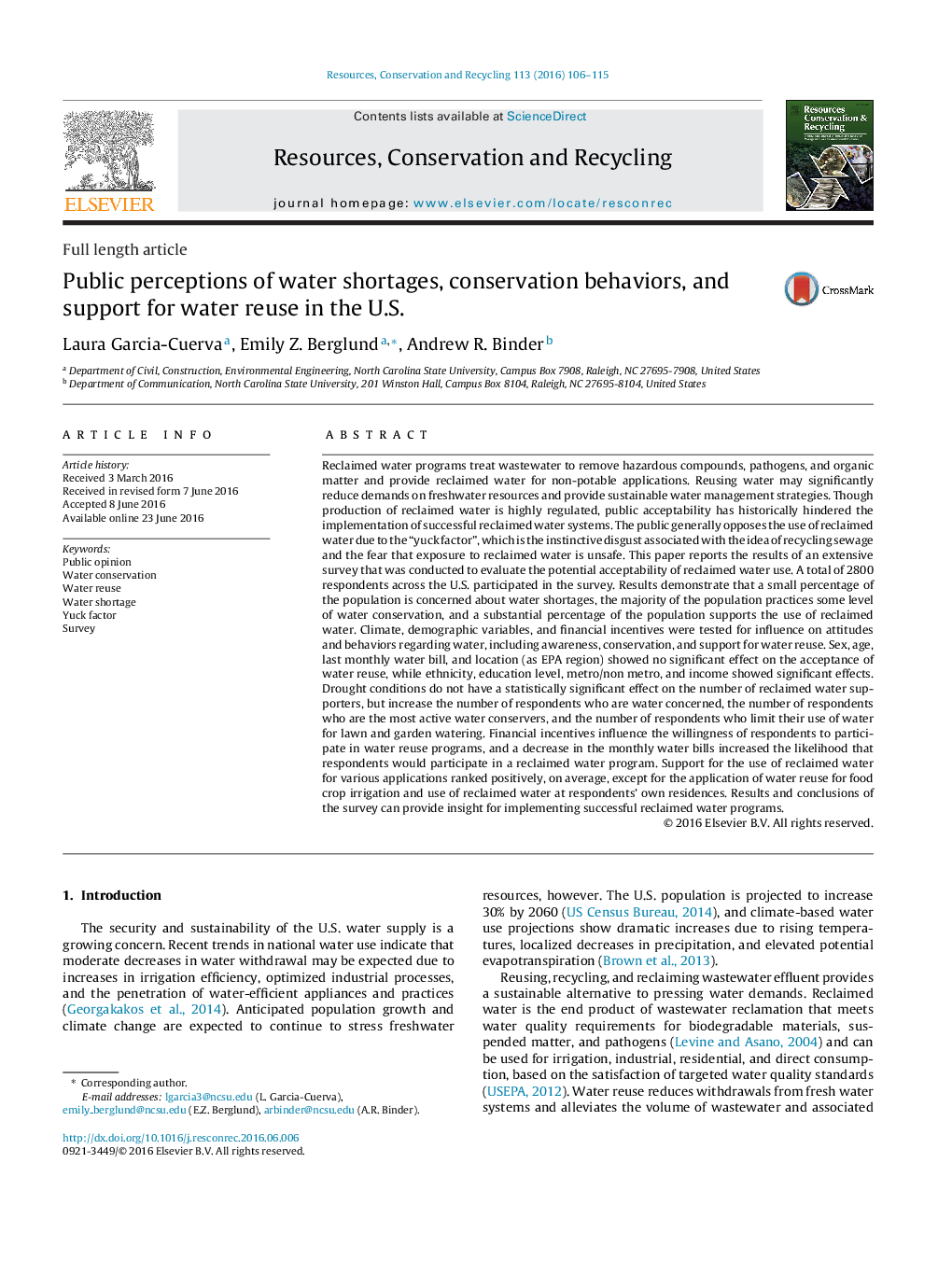| کد مقاله | کد نشریه | سال انتشار | مقاله انگلیسی | نسخه تمام متن |
|---|---|---|---|---|
| 1062682 | 1485678 | 2016 | 10 صفحه PDF | دانلود رایگان |
• Survey assessed perceptions of water reuse, conservation, and water shortages.
• Majority of the population conserves water and supports use of reclaimed water.
• Droughts were found to have some effect on survey responses.
• Ethnicity, education, metro/non metro, and income affect survey responses.
• Financial incentives influence willingness to participate in water reuse programs.
Reclaimed water programs treat wastewater to remove hazardous compounds, pathogens, and organic matter and provide reclaimed water for non-potable applications. Reusing water may significantly reduce demands on freshwater resources and provide sustainable water management strategies. Though production of reclaimed water is highly regulated, public acceptability has historically hindered the implementation of successful reclaimed water systems. The public generally opposes the use of reclaimed water due to the “yuck factor”, which is the instinctive disgust associated with the idea of recycling sewage and the fear that exposure to reclaimed water is unsafe. This paper reports the results of an extensive survey that was conducted to evaluate the potential acceptability of reclaimed water use. A total of 2800 respondents across the U.S. participated in the survey. Results demonstrate that a small percentage of the population is concerned about water shortages, the majority of the population practices some level of water conservation, and a substantial percentage of the population supports the use of reclaimed water. Climate, demographic variables, and financial incentives were tested for influence on attitudes and behaviors regarding water, including awareness, conservation, and support for water reuse. Sex, age, last monthly water bill, and location (as EPA region) showed no significant effect on the acceptance of water reuse, while ethnicity, education level, metro/non metro, and income showed significant effects. Drought conditions do not have a statistically significant effect on the number of reclaimed water supporters, but increase the number of respondents who are water concerned, the number of respondents who are the most active water conservers, and the number of respondents who limit their use of water for lawn and garden watering. Financial incentives influence the willingness of respondents to participate in water reuse programs, and a decrease in the monthly water bills increased the likelihood that respondents would participate in a reclaimed water program. Support for the use of reclaimed water for various applications ranked positively, on average, except for the application of water reuse for food crop irrigation and use of reclaimed water at respondents’ own residences. Results and conclusions of the survey can provide insight for implementing successful reclaimed water programs.
Journal: Resources, Conservation and Recycling - Volume 113, October 2016, Pages 106–115
